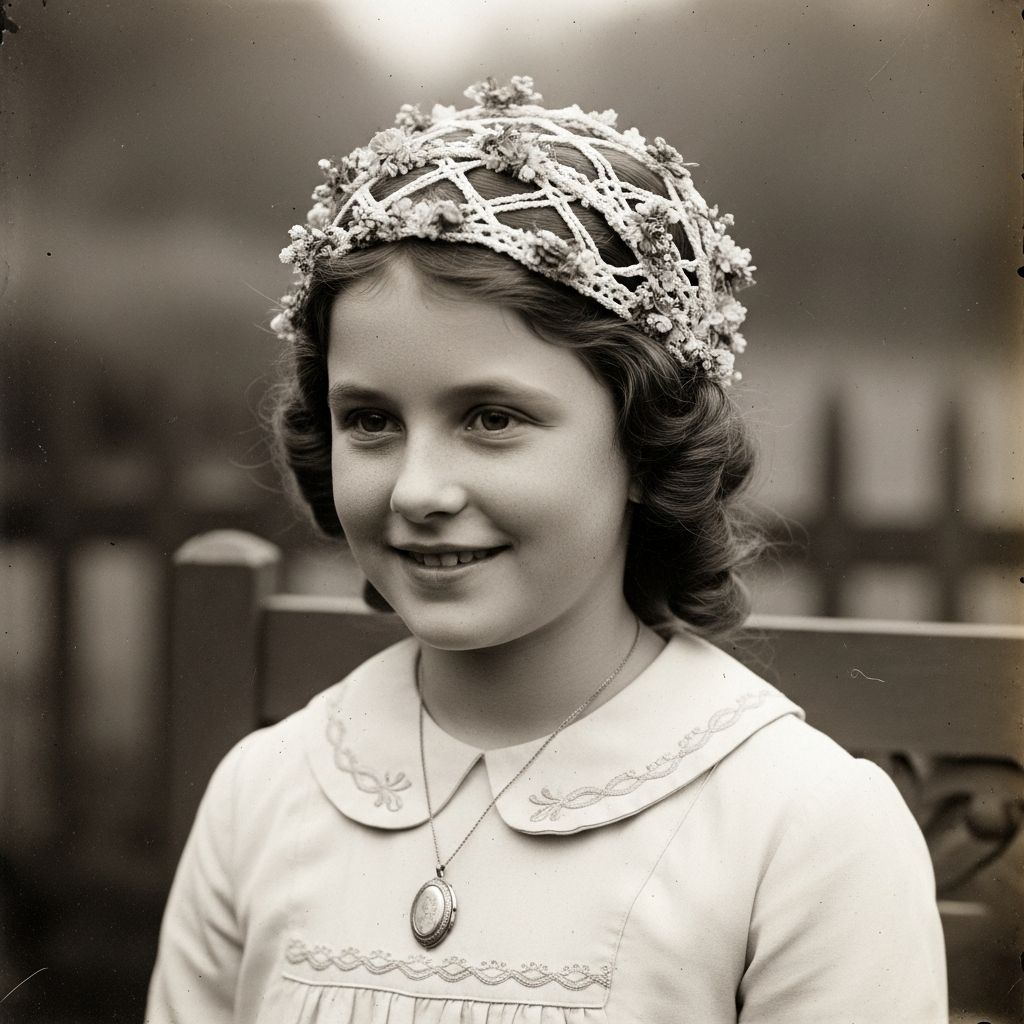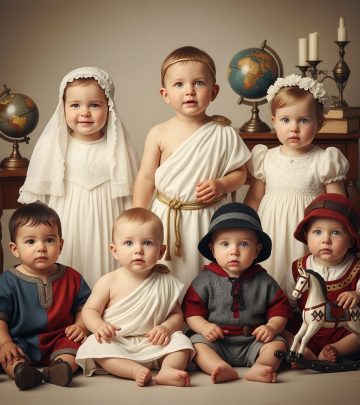Pammy: Origin, Meaning, Popularity, and Legacy of a Sweet Vintage Name
Explore the affectionate history, meaning, and cultural legacy behind the cheerful and vintage baby name Pammy.

Choosing a baby name is a journey through centuries of tradition, cultural nuance, and personal sentiment. Pammy, with its honeyed sound and nostalgic warmth, stands as a testament to names that evoke genuine affection and cheerful simplicity. This article explores in depth the roots, meaning, popularity trends, and cultural resonance of the baby girl name Pammy, guiding parents and name enthusiasts through its storied past and friendly future.
Table of Contents
- Origin and Meaning of Pammy
- Historical and Literary Background
- Popularity Trends and Usage
- Variants, Similar Names, and International Forms
- Numerology and Symbolism
- Famous & Fictional Pammys
- Sibling Name Suggestions
- Frequently Asked Questions
Pammy: Name Origin and Meaning
Pammy is an endearing feminine name with English and Greek origins, most commonly recognized as a diminutive of Pamela. The name evokes qualities of warmth, sweetness, and approachable friendliness. In Greek, the components “pan” (all) and “meli” (honey) combine to suggest “all honey” or “all sweetness”, endowing Pammy with connotations of kindness and lighthearted affection126.
- Language/Origin: English (diminutive of Pamela), originally inspired by Greek roots.
- Meaning: “All honey”, “sweetness”, “with new leaves” (suggesting renewal and growth)
- Pronunciation: PAM-ee / ˈpæmi
- Gender: Girl (feminine)
- Name Type: Affectionate diminutive; informal, yet sometimes given as a formal first name.
Parents are often drawn to Pammy not only for its sweetness, but also for its straightforward pronunciation, gentle tone, and the sense of instant familiarity it lends.
Historical and Literary Background
The story of Pammy is entwined with the history of its mother name, Pamela. Pamela was created by the English Renaissance poet Sir Philip Sidney for his 16th-century work “Arcadia”. The name was a literary invention—likely from Greek—with Sidney perhaps intending it to suggest “all sweetness”. Pamela gained fame in the 18th century through Samuel Richardson’s novel “Pamela, or Virtue Rewarded”, which popularized the name across England and, eventually, America5.
By the mid-20th century, Pamela had become a popular given name in the US and UK, often shortened affectionately to Pammy in homes and playgrounds. Pammy, as a diminutive, carries a cheerful, nostalgic quality, reminiscent of the optimistic era of the 1950s and 60s2.
Pammy’s Cultural Resonance
- Affectionate Diminutive: Frequently used within families and close circles; less common as an official first name but cherished for its warmth.
- Vintage Appeal: The name’s retro character attracts parents looking for names with a sense of nostalgia and simplicity.
- Nostalgic Warmth: Pammy’s use, especially from the 1950s through the 70s, reflects the era’s fondness for lighthearted, friendly, and easily approachable names.
Popularity Trends and Usage
While never among the most highly ranked names, Pammy has seen periods of moderate popularity, especially as a term of endearment or familial nickname. Its formal usage peaked in the mid-20th century in the United States, echoing Pamela’s broader cultural influence at the time.
Statistical Overview
| Year | Recorded Births |
|---|---|
| 1957 | 9 |
| 1958 | 13 |
| 1959 | 13 |
| 1960 | 15 |
| 1961 | 25 |
| 1962 | 26 |
| 1963 | 41 |
| 1964 | 32 |
| 1965 | 23 |
| 1966 | 22 |
| 1967 | 19 |
| 1968 | 13 |
| 1969 | 15 |
| 1970 | 31 |
| 1971 | 32 |
| 1972 | 15 |
| 1973 | 15 |
| 1974 | 12 |
| 1975 | 8 |
Peak usage was recorded in 1963 with 41 births nationally, reflecting its presence in the cultural zeitgeist. Over the past five decades, the name’s use has declined significantly, paralleling the drop-off of many diminutive forms as legal names. However, Pammy’s enduring charm ensures it remains a cherished choice for nicknames and informal addresses.
Geographical Trends
Historically, Pammy was most popular in US states such as Illinois, Michigan, and Mississippi. In 1970, Mississippi recorded the highest share of Pammy births1.
Variants, Similar Names, and International Forms
Pammy’s accessibility and universal appeal mean it has relatives in several cultures and languages. While sometimes chosen as a formal first name, it most often appears as a playful variant or affectionate short form of Pamela.
Common Variants and Related Names
- Pamela – original literary name, most formal
- Pam – popular, simplified short form
- Pammi – occasional spelling variant, particularly in South Asian contexts
International Variants
- Pamela (Spanish, Italian, French, Hungarian, Russian)
- Paméla (French, with accent)
- Παμέλα (Greek adaptation)
Similar Baby Names
- Mandy
- Cindy
- Sandy
- Tammy
- Demi
- Romy
- Lily
- Mimi
Numerology, Zodiac, and Symbolism
The name Pammy carries positive symbolism, often associated with openness, kindness, and a joyful spirit. Numerological interpretations further color its meaning with aspects of intuition, creativity, and growth.
Numerology for Pammy
- Numerology Number: 5 or 7, depending on source and calculation method
- Associated Meaning: Reflects versatility, creative energy, and a willingness to adapt and grow.
- Personality Association: People named Pammy are often seen as warm, sweet-natured, and effortlessly kind34.
Zodiac and Astrology Associations
- Zodiac Sign: Virgo (Kanya), when translated using Indic zodiac traditions
- Nakshatra: Uttara Phalguni/Uttara/Utram (To, Pa, Pi)
Famous and Fictional Pammys
Though Pammy is uncommon as a celebrity first name, its mother name Pamela boasts several notable bearers, including:
- Pamela Anderson – Actress and activist
- Pamela Hansford Johnson – Renowned British author
While public figures explicitly named Pammy are rare, the name’s friendly, accessible aura lends itself well to characters in family stories, children’s literature, and pop culture. Lists of fictional Pammys occasionally surface in lesser-known stories or community-created content, typically representing kind-hearted, cheerful personalities.
Sibling Name Suggestions
Families who love Pammy often pair it with other cheerful, vintage, or alliterative names for siblings:
- Pamela
- Penny
- Patty
- Paige
- Piper
- Poppy
These names share either sound, thematic elements, or the same era of popularity, helping parents build a harmonious sibling set.
Frequently Asked Questions (FAQs)
Q: Is Pammy a standalone name or always a nickname?
A: While Pammy originated as a diminutive of Pamela, it is occasionally used as a formal first name. However, it is much more common as a term of endearment or family nickname.
Q: What does the name Pammy actually mean?
A: Pammy means “all honey” or “sweetness,” reflecting warmth, kindness, and friendliness. The name also suggests renewal and fresh beginnings in some interpretations.
Q: When was Pammy most popular?
A: Pammy peaked in popularity in the early to mid-1960s in the United States, especially as a diminutive for Pamela, but has declined in use since then as a legal first name.
Q: Are there famous people named Pammy?
A: Pammy is rarely used as a celebrity first name, but Pamela, its root, is represented among well-known public figures. Fictional Pammys occasionally appear in literature and popular culture.
Q: Does Pammy have cultural or literary significance?
A: Pammy retains cultural legacy through its association with the literary name Pamela, created by Sir Philip Sidney and later popularized by Samuel Richardson’s novel. Its usage today evokes vintage charm and affectionate warmth.
Pammy: A Name to Cherish
With its gentle resonance, historical roots, and undiminished sweetness, Pammy endures as a name that conjures images of sunlit afternoons, kind smiles, and the loving embrace of family. Whether chosen for its vintage flair, friendly vibe, or the nostalgia it brings, Pammy invites new generations to rediscover its simple joys and heartfelt resonance.












